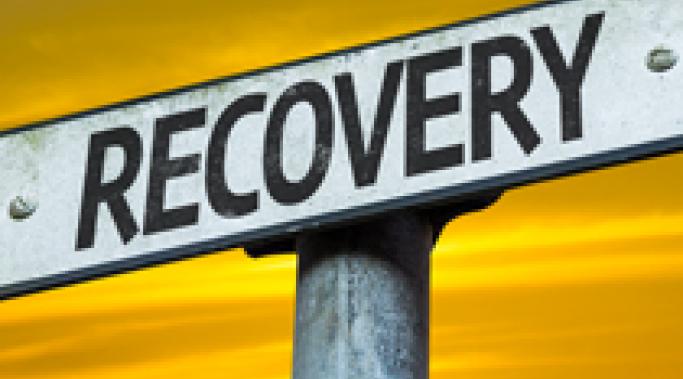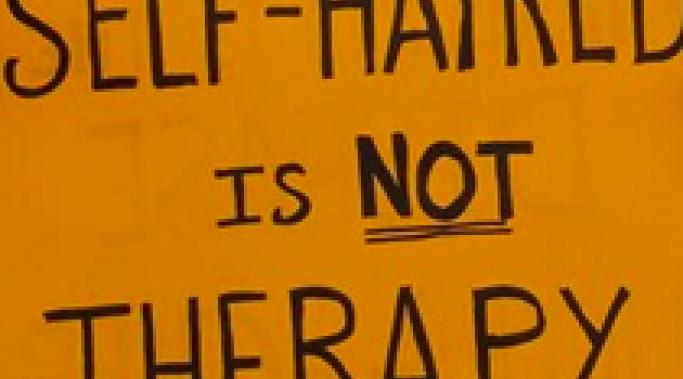The government can help people with mental health issues. I am on Social Security Disability Insurance (SSDI) and Supplemental Security Income (SSI) and run a small freelance writing business (How To Get Disability Benefits For Mental Illness). Until recently, I could not get insurance because of my schizophrenia being a pre-existing condition, which forced me to stay on disability so I could get Medicare and Medicaid so I wouldn't be wiped out again if I were hospitalized. This meant I had to watch my income. So I have plenty of ideas about how the government can help people with mental health issues.
Mental Health - Recovering from Mental Illness
Recovery from borderline personality disorder (BPD) is possible. I'm living proof. Recently, I ran across some old Facebook posts about moving into my own apartment and getting my own cell phone. That may not seem like much, but to me it's a huge victory. I am in recovery from borderline personality disorder--and I was once written off as a hopeless case. If I can recover from borderline personality disorder, so can you--you just need to find the right therapy, put in the effort, and recognize the small victories.
There are many myths about child sexual abuse but I'm going to focus on three (What Is Child Sexual Abuse?). Three myths about child sexual abuse are that all abused children tell someone, all victims of childhood sexual abuse have physical trauma, and all victims of childhood sexual abuse will grow up to become sex offenders. Let's take a closer look at these child sexual abuse myths.
There are three things few people know about self-harm, also known as self-injury. Self-injury is rarely discussed in our society. Mental illness is rarely discussed, and self-injury is even more stigmatized. Virtually every website that discusses self-injury has the word "secret" in it, as do movies about it and books about it. Here are three things few people know about self-injury.
Should the U.S. ban conversion therapy? Recently, I received an email asking me to sign a petition demanding the Federal Trade Commission ban conversion therapy, also known as "reparative therapy," "ex-gay therapy," and "sexual orientation therapy." This therapy, which has been discredited by nearly every medical, psychiatric, and psychological organization, claims to be able to turn a Lesbian, Gay, Bisexual, Transgender, Questioning (LGBTQ) person into a heterosexual (Cure the Gay: Gay Conversion Therapy – Real or Hoax?). When you read what this therapy involves--the Southern Poverty Law Center claims it uses "violent role play, reenactment of past abuses, and exercises involving nudity and intimate touching" 1 --it's hard to see why it's allowed. But should the U.S. ban conversion therapy?
It's clear that anti-Lesbian, Gay, Bisexual, Transgender, and Questioning (LGBTQ) laws negatively impact mental health. Recently several states have passed laws harmful to the LGBTQ community. These laws reinforce the stigma attached to being LGBTQ and hurt people. Rooted in fear, these laws contribute to the higher rates of mental illness and suicide in the LGBTQ community. In this video, I explore these laws.
There are three things mental health professionals don't know about their clients because of stigma. Sometimes we're lucky and get a mental health professional who understands us, but many times we get a mental health professional who believes myths about mental illness or about mental health consumers. I've met many mental health professionals, and I would like for them all to understand three things: one, we're not children, two, we have an illness and not a character fault, and three, each case is unique.
We need universal healthcare standards. Normally I don't write a post when I'm angry, but today I'm making an exception. A friend of mine is disabled due to a spinal cord injury. She was recently put in a nursing home, with screaming dementia patients, an apathetic social worker, hostile and abusive staff, and she was left to lie in her own feces and urine. When asked why my friend was getting this treatment, a staff member said "Medicaid is not the Cadillac of insurance." This is why we need universal healthcare standards--because if the rich had to be in this situation, things would improve in minutes. We need everyone in the same boat to ensure mental healthcare treatment is not motivated by the bottom line (How To Pay For Mental Health Services). Everyone should receive basic healthcare standards, regardless of insurance or lack thereof.
There are three things besides treatment mental health consumers need. I have an interesting life. I am a low-income mental health consumer, and most of the people I know are either treatment professionals or low-income mental health consumers (Reach Out To The Right People For Mental Health Help). We have many needs--obviously treatment is one of them--that people may not consider. So here are three things mental health consumers need (besides treatment).
Can childhood bullying cause mental illness? I am the proud aunt of four nephews and one niece, all age five and under (family gatherings are very lively). The oldest, Desi, has started preschool; but, as a child with sensory processing disorder, is having a hard time. The other children are mean to him--one said he hated him in front of their mothers and the other boy's mother did nothing. Desi goes into the playhouse and cries when the other children refuse to play with him. It reminds me of my childhood and breaks my heart to see it played out with my special needs nephew. I fear the answer to the question, "Can childhood bullying cause mental illness?" will play out with him.









